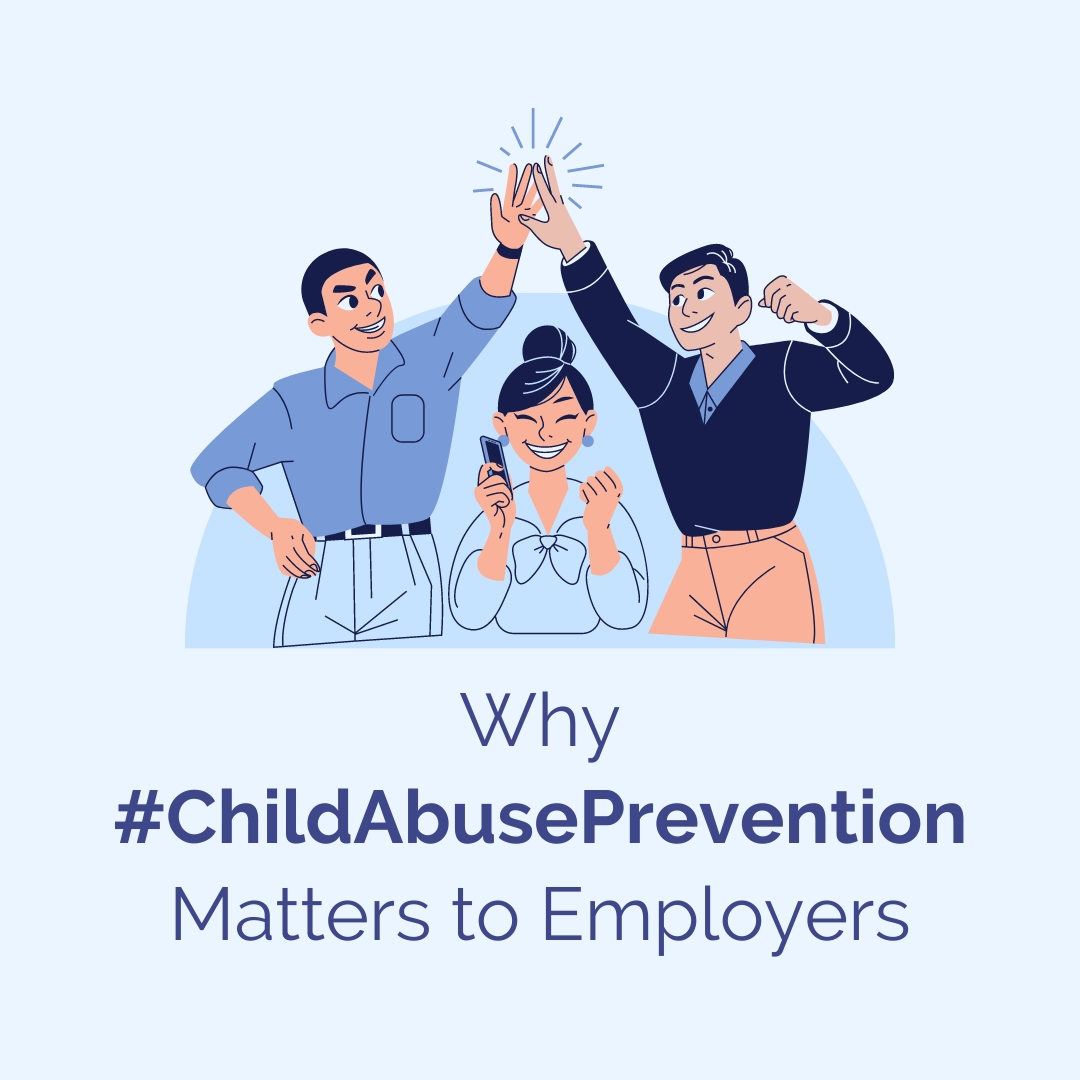Why #ChildAbusePrevention Matters to Employers

At Champions for Children, we know that our experiences during childhood – from the happiest memories to the most traumatic – last a lifetime. The good, the bad, and the ugly parts of our lives don’t just go away when we grow up, they shape and mold the adults we become – and that matters to employers.
In the United States, 1 in 6 adults report experiencing four or more research-identified Adverse Childhood Experiences or “ACEs” during their childhood (child abuse or neglect; family violence or separation; parental mental illness, substance abuse, or incarceration). Studies show even this very common level of trauma significantly impacts high school graduation rates and a person’s ability to be productive in the workforce. By contrast, adults who have fewer ACEs and/or more Positive Childhood Experiences or “PCEs” perform better and are able to provide a wide range of benefits back to their employers.
In this week’s blog, we take a look at some reasons employers should be concerned about ACEs among our community’s future workforce (i.e. our current little ones), how promoting PCEs brightens the outlook for employers, and how employers can make a positive difference now that will last for generations.
Understanding ACEs in the Workplace
Adults who have experienced ACEs may struggle with emotional and psychological challenges that can affect their work performance, including absenteeism, reduced productivity, and difficulty concentrating. ACEs can also lead to a range of health problems, including mental health issues, substance abuse, and chronic diseases such as heart disease and diabetes. These health problems drive increased healthcare costs for both employers and employees. Those who have experienced ACEs may also struggle with interpersonal relationships, which can affect their ability to work well with others and may lead to turnover.
Promoting PCEs for the Workplace of Tomorrow
The best news to come out of “PACEs” research (the area of study covering both ACEs and PCEs) is that as deeply negative as the impact of ACEs can be, exposure to PCEs is proven to help mitigate the impact and provide opportunities for positive outcomes. PCEs aren’t anything complex – they’re as simple as a child knowing they have at least two adults who care about them; feeling supported by friends; and participating in community traditions.
This is exactly what Champions for Children does through all of our programs. We provide families with education, support, and resources not only to steer their children clear of ACEs in the first place, but to lessen the impact of ACEs that do occur through nurturing family experiences, social connections, and positive shared memories. Raising a generation of children with this kind of resilience is indispensable to a strong future workforce.
Making an Impact for the Next Generation of Workers
Champions is asking employers to join with us to deliver strategies that increase families’ access to the PCEs that are scientifically proven to reduce the impact of ACEs. Investing in PCEs is good not only for children and their families but for every employer and every citizen in our community. Your organization can help by:
- Making a one-time or ongoing donation of funds. Consider setting up a matching gift program for employee contributions to Champions for Children.
Volunteering time through a company-wide volunteer day or by providing paid time off for employees to volunteer on their own. - Providing in-kind donations such as developmental toys and board books that will help families create early opportunities to support their own positive childhood experiences.
- Hosting a company event, such as a charity auction or a walk/run event, where employees can participate and raise funds for Champions for Children.
- Sharing information about Champions’ programs with your employees and customers, who may wish to support our organization OR become a participant with their families!
With your support, we can protect vulnerable children from abuse and neglect and prepare them for happy, healthy, successful lives and careers. To learn more and/or get involved, visit https://cfctb.org/help/
